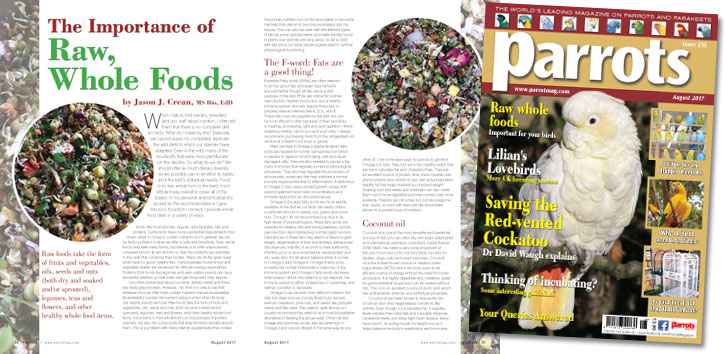
by Jason J. Crean, MS Bio, EdD
When I talk to bird owners, breeders, and zoo staff about nutrition, I often tell them that there is no 'complete' diet for birds. What do I mean by this? Basically, we cannot expect to completely replicate the wild diets to which our species have adapted. Even in the wild, many of the foodstuffs that were once plentiful are on the decline. So what do we do? We should offer as much dietary diversity as we possibly can in an effort to satisfy all of the bird’s individual needs. Food in its raw, whole form is the best, most efficient way overall to cover all of the bases. In my personal animal husbandry, as well as the recommendations I give the zoos for which I consult, I provide whole food diets in a variety of ways.
Birds, like most animals, require carbohydrates, fats and proteins. Some birds have more substantial requirements than others when it comes to certain nutrients but in general, we can be fairly confident in what we offer is safe and beneficial. Raw, whole foods may take many forms, but the key is to offer unprocessed, unheated food in its whole form so that the nutrients are available to the cells that compose their bodies. Many oils fill the great need birds have for good, healthy fats. Carbohydrates found in fruit and vegetable matter are necessary for efficient energy expenditure. Proteins from foods like legumes and even edible insects can be a wonderful addition so that birds can get the protein they require.
Buy Now!
